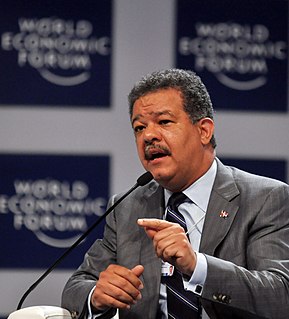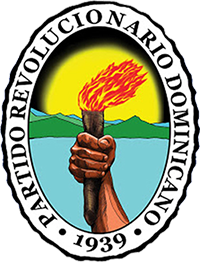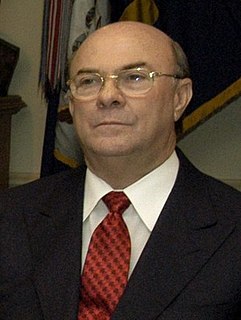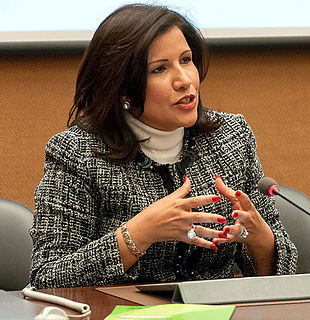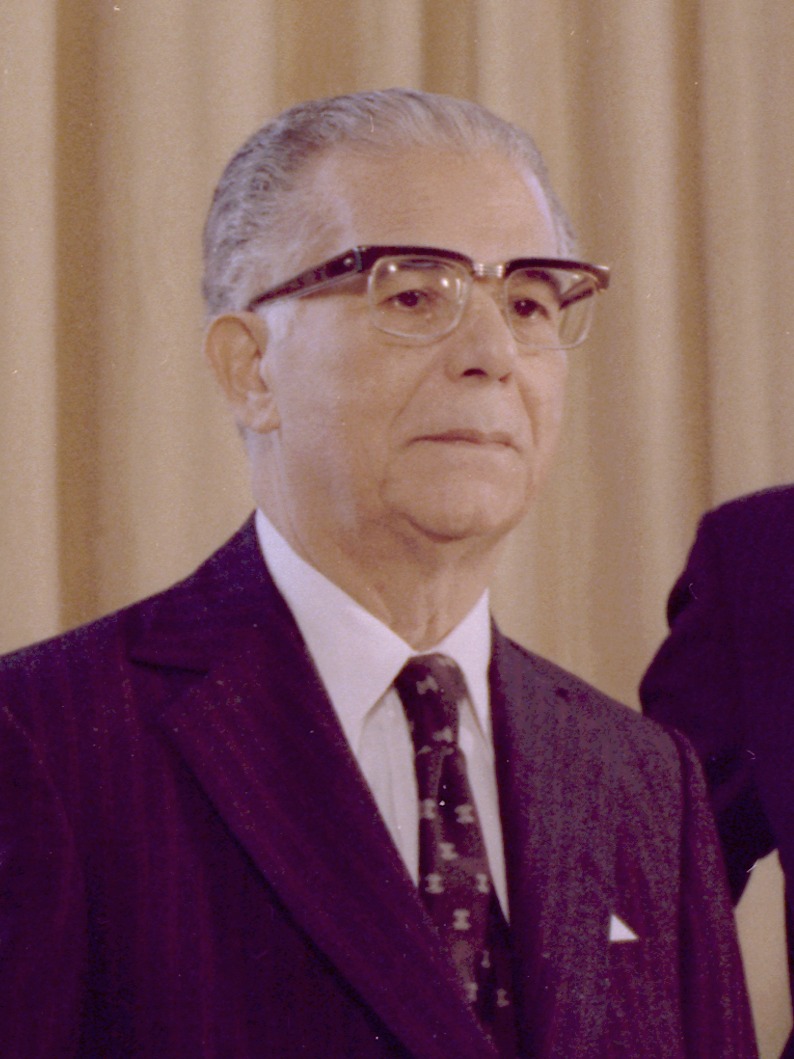| ||||||||||||||||||||
| ||||||||||||||||||||
| ||||||||||||||||||||
| ||||||||||||||||||||
| This article is part of a series on the |
| Politics of the Dominican Republic |
|---|
 |
| Foreign relations |
Presidential elections were held in the Dominican Republic on 20 May 2012. [1] They were the fifth quadrennial elections for the presidency and vice-presidency since 1998, when a change in the electoral law separated the presidential from the congressional and municipal elections. [2]

The Dominican Republic is a country located in the island of Hispaniola, in the Greater Antilles archipelago of the Caribbean region. It occupies the eastern five-eighths of the island, which it shares with the nation of Haiti, making Hispaniola one of two Caribbean islands, along with Saint Martin, that are shared by two sovereign states. The Dominican Republic is the second-largest Caribbean nation by area at 48,671 square kilometers (18,792 sq mi), and third by population with approximately 10 million people, of which approximately three million live in the metropolitan area of Santo Domingo, the capital city.

The President of the Dominican Republic is both the head of state and head of government of the Dominican Republic. The presidential system was established in 1844, following the proclamation of the republic during the Dominican War of Independence. The President of the Dominican Republic is styled Your Excellency, Mr. President during his time in office. His official residence is the National Palace.

The Vice President is the first person in the presidential line of succession, ascending to the Presidency upon the death, resignation, or removal of the President. There have been thirty-nine Vice Presidents of the Dominican Republic. Under the Constitution of the Dominican Republic, the Vice President shall be elected along with the President.
Contents
- Background
- Electorate
- Electorate by age and sex
- Electorate by province
- Expatriate electorate
- Political parties
- Primary elections
- Candidates
- Results
- Overseas deputies
- Overseas deputies elected
- Reactions
- References
- External links
As specified in the new constitution ratified in January 2010, the presidential elections of 2012 coincided with the election of Overseas Deputies in Dominican expatriate communities. [3] Since 1974, elections in the Dominican Republic took place on 16 May every four years. Nevertheless, the constitutional reform of 2009 stipulated in article 209 that the elections would be held on 20 May 2012 to avoid their falling on a work day. [1] Candidates for the presidency competed for the highest number of votes, with the leader needing more than 50% of valid ballots to avoid a second round. [4]

The Dominican Republic has gone through 39 constitutions, more than any other country, since its independence in 1844. This statistic is a somewhat deceiving indicator of political stability, however, because of the Dominican practice of promulgating a new constitution whenever an amendment was ratified. Although technically different from each other in some particular provisions, most new constitutions contained in reality only minor modifications of those previously in effect. Sweeping constitutional innovations were actually relatively rare.

The two-round system is a voting method used to elect a single winner, where the voter casts a single vote for their chosen candidate. However, if no candidate receives the required number of votes, then those candidates having less than a certain proportion of the votes, or all but the two candidates receiving the most votes, are eliminated, and a second round of voting is held.
Danilo Medina of the ruling Dominican Liberation Party was elected president with a majority of votes in the first ballot.

Danilo Medina Sánchez is a Dominican politician and the current President of the Dominican Republic, since 2012.
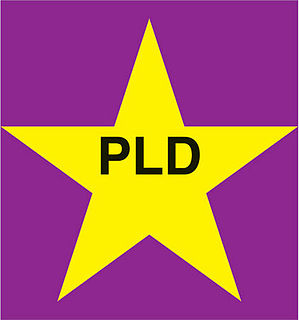
The Dominican Liberation Party is the current governing political party in the Dominican Republic. Founded in 1973 by former president Juan Bosch, the party, along with the Dominican Revolutionary Party, have dominated politics in the country since the establishment of democracy.
This was the first election to involve participation by Dominican citizens abroad. In addition to voting for the president and vice-president, Dominican expatriates participated in by-elections for seven new seats (within three overseas constituencies) in the Chamber of Deputies. [5]
An overseas constituency or overseas electoral district is any electoral district located outside of a nation-state's borders but which is recognized by the state's government as a district for the representation of its expatriate residents who live within the territory of another nation-state. Such constituencies are often organized in order to engage expatriate or diaspora voters who retain their citizenship.


